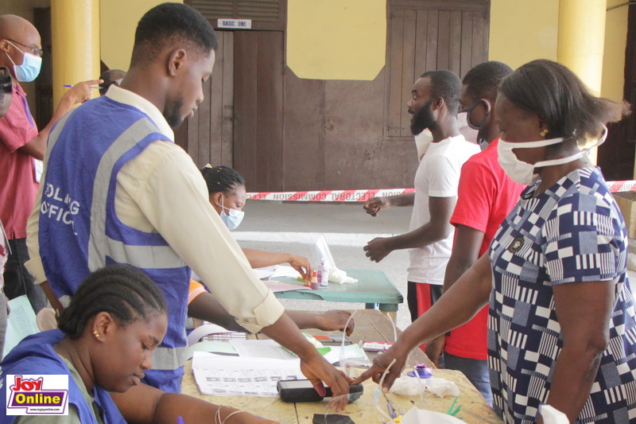They are arguably the most crucial material in Ghana’s electoral process. Their little alteration can either make or mar a parliamentary or presidential candidate’s aspiration.
The pink sheets as widely known are official documents used by the Electoral Commission in collating and validating the results of elections at the polling stations and constituencies.
They are the sourced summary of results which the Commission relies on to declare the election of members of Parliament and the President.
Because these sheets are conventionally transferred electronically to both the Commission and control rooms of competing political parties for collating purposes, they are highly susceptible to tampering.
Authenticating their credibility can be challenging as there are no special tools to secure them from infiltrations.
A Cybersecurity expert with Ghana Telecommunication University, Professor Quist-Aphetsi Kester, has developed a robust tech system, known as the Pink Sheets Validation and Transmission System (PSVTS) to smoke out any altered sheets.
“Scanned sheets can be edited. So, the technology is to make sure that we have a point where the pink sheet can be taken, then validated, shared among all stakeholders and then transmitted,” he said.
Using cryptographic hash functions – a mathematical algorithm – that generates a unique code to secure the scanned paper, the system helps in validating the sheet and exposes any portions of it that may have been altered.
The PSVTS involves capturing images of election result sheets (pink sheets), securing them with the unique codes, and the resulting message digest together with the original pink sheet is made accessible to both the public and the party agents.
“Because of the cryptographic approach it uses it ensures that if someone tampers with the pink sheet it can easily be detected. The EC can get a central system where they can upload the sheet where everyone can see and also validate it to ensure transparency,” Prof. Quist said.
The EC after employing the technology makes public the image of the pink sheet and the unique codes – hash function, public keys, and the message digest.
Any member of the public or party agent can then download the sheets together with the codes to confirm their authenticity.
After inputting the codes and image of the pink sheet into the system, the message of a long unique code (message digest) is generated and subsequently compared with the one published by the EC. If the two digests match, it confirms that the pink sheet has not been altered and is authentic.
The Open-source cryptographic libraries, such as OpenSSL, can be used to implement the hash functions and public key cryptography while secure transmission protocols – hypertext transfer protocol secure (HTTPS) – can used to ensure the safe distribution of digital copies to party agents.
Prof. Quist believes the system will repose confidence in the electoral process.
“This public disclosure allows for independent verification of the election results, ensuring that any alterations to the pink sheets can be easily detected. By employing PSVTS, the electoral process becomes more transparent and trustworthy, fostering increased public confidence and trust in the integrity of the elections,” he said.
Meanwhile, the Electoral Commission has announced plans to upload the sheets onto a dedicated site for public viewing as part of measures in ensuring transparency and fairness in the upcoming elections.
Latest Stories
-
Mamobi Disturbance: Police place GH¢20K bounty on man captured with weapon
1 min -
Blade Runner 2049 maker sues Musk over robotaxi images
11 mins -
Vacant seat controversy: NDC commends Speaker Bagbin for displaying ‘maturity’ at Tuesday’s proceeding
14 mins -
Akatsi North chiefs honour “Next President” Bawumia
17 mins -
AbrahamTheLion debuts spiritually charged EP, ‘Warrior Kings & Priests’
22 mins -
Parliament brouhaha: This matter is far from over – Dafeamekpor
1 hour -
Clerk of Parliament hasn’t arranged seats; NPP majority position still stands – Habib Iddrisu
2 hours -
We’re engaging international partners to deploy service personnel abroad – National Service Authority
2 hours -
Ghanaians to use VFSGlobal for UK Visa applications from October 22
2 hours -
2024 election: Cynthia Morrison to still contest as Independent candidate
3 hours -
NAPO assures Christian Council of NPP’s commitment to fight galamsey
3 hours -
Ghana Telecom lecturer develops system to detect alterations on scanned ‘pink sheets’
3 hours -
AG defends constitutionality of MPs retaining seats in Supreme Court case
4 hours -
The Weight of Loss – Grieving in a World that Moves On
4 hours -
I will do more for you as president– Bawumia assures Adaklu community
4 hours

